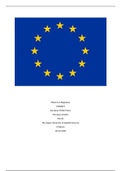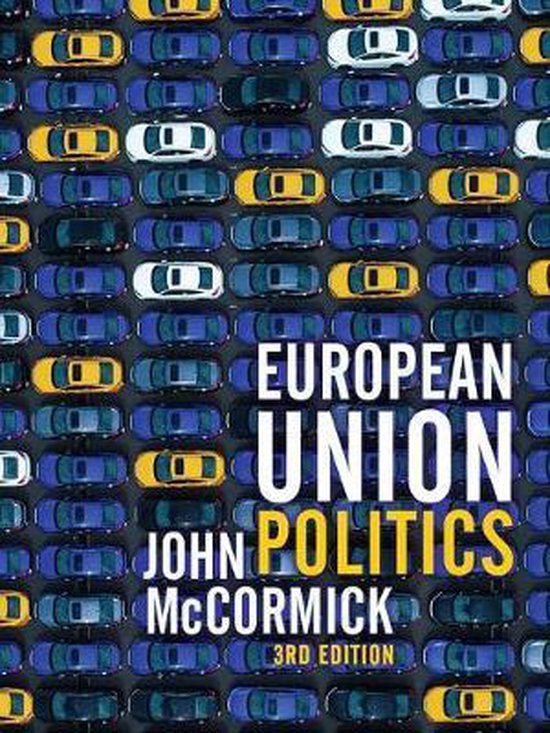Ahlam D.A Begashaw
19068697
European Public Policy
European studies
ES4.2G
The Hague University of Applied Sciences
P.Pijlman
18/12/2020
,Table of Contents
Week 1................................................................................................................................3
Week 2…..…………………………………………………………………………………………5
Week 3…….........................................................................................................................6
Week 4………………………………….........………..............................................................8
Week 5……………………………………….......................................................................... 9
Week 6…………………………………………………………………………..........................10
Week 7…............................................................................................................................12
Week 8………………….......................................................................................................13
Week 9……………………………………………………………………………………………..13
Week 10……………………………………………………………………………………………16
Week 11…………………………………………………………………………………………...17
Reference list………………………………………………………………………………….….18
, Seminar questions week 1: Europe’s Ideas, Ideals, and Identities.
1.Refresh and Reflect :This assignment will start by looking back at what is learned in the
first year of the course Institutions of the European Union. In short, I will explain the political
role as well as the function of the European Commission, the European Parliament, and the
Council of the European Union.
Firstly, the function of the European Commission will be explained. The European
Commission refers to the executive branch of the European Union. This branch is
responsible for the common interests the EU has and the branch also executes this common
interest through proposing legislation, implementing policies, and managing the EU budget
(European Union, n.d.).
Secondly, the function of the European Parliament will be explained. The European
Parliament refers to the branch of the European Union, which makes the laws. Those who
are seated in the Parliament are democratically chosen by EU voters through 5-year
elections. When looking at the roles of the Parliament, we can divide them into three main
roles, which are the following: legislative, supervisory, and budgetary. The legislative role
refers to the Parliament being in charge of passing EU laws, this role they execute together
with the Council of the EU and on the proposals of the EU Commission. Furthermore, there
is the supervisory role which refers to the role of electing the president of the EU
Commission and supervising every area the Commission and Council execute. Lastly, the
budgetary role refers to establishing the EU budget together with the Council, as well as
approving the Multiannual Financial Framework, which is the long-term budget for the
European Union (European Union, n.d.).
Thirdly, the function of the Council of the European Union will be explained. The Council of
the European Union consists of government ministers from every EU member state. These
ministers come together to discuss, amend, and adopt various laws. The Council works
together with the Parliament and they make decisions in the EU. They do not pass laws, but
merely give direction to the EU. All the complex issues that can not be solved on the lower
levels of the EU, the Council solves at a higher level (European Union, n.d.).






